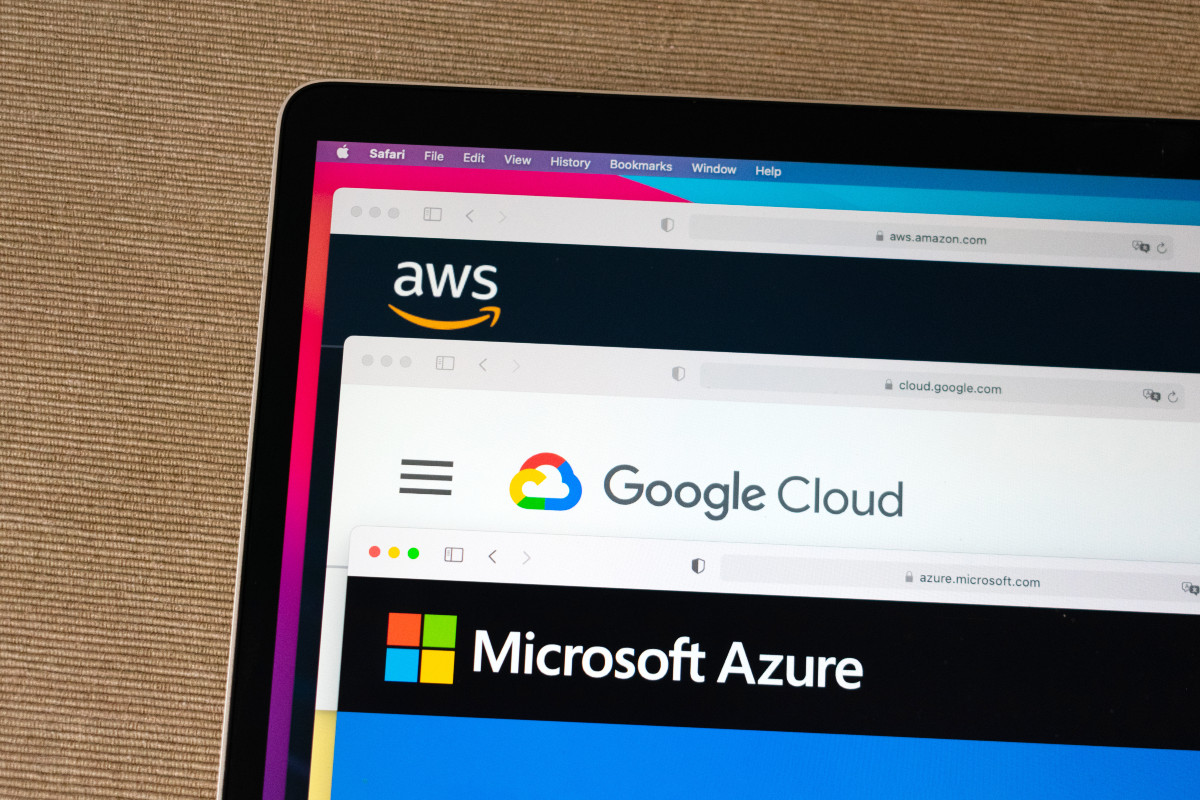The Competition and Markets Authority (CMA) has wrapped up its two-year investigation into the UK cloud market with a blunt verdict: “Competition is not working well.”
The outcome of its final report isn’t exactly surprising, given it echoes the provisional findings that the CMA announced earlier this year. However, in its conclusions, the competition authority was clear – the entrenched positions held by Amazon Web Services (AWS) and Microsoft are stifling choice and innovation for British customers, and thus demands further investigation as to whether they need to be designated with ‘strategic market status’.
How much of the market is dominated by AWS and Microsoft?
According to the final report, AWS and Microsoft each control between 30% and 40% of UK cloud spend. That’s significant given that UK customers spent £10.5 billion on cloud services in 2024, with that spending having grown by nearly 30% per year since 2020, and only expected to grow further.
AWS and Microsoft’s dominance the CMA links to a trio of obstacles: high technical and commercial switching costs such as egress fees, incompatible architectures that lock workloads into a single vendor, and Microsoft’s software-licensing rules, which the regulator says disadvantage rivals Google Cloud and AWS.
The CMA believes that by giving the two companies a strategic market status designation, it would have the ability to impose targeted and bespoke interventions to address the concerns it has identified. That could help the market be more competitive, as the report states that “measures aimed at Microsoft and AWS would address market-wide concerns by directly benefiting most UK customers and producing wider indirect effects by altering the competitive conditions for other providers.”
The other big American player in the UK market – Google Cloud – has escaped further scrutiny for now. The CMA does state that it will keep possible further probes into other providers ‘under review’, promising an update on the market in early 2026.
What were some of the report’s key findings?
Other than the fact that it deems the UK cloud market to be uncompetitive in general, the CMA did dig deeper into the reasons why. For example, it found that less than 1% of customers switch cloud providers each year, reinforcing the role played by hefty data-egress charges and the capital expenditure required to build out a multi-cloud footprint.
Microsoft also found itself in the firing line as it singled out its licensing provisions, stating that “these restrictions mean that AWS’ and Google’s competitive offerings are directly affected by Microsoft’s licensing practices.” It observes that Azure hosts a ‘disproportionately’ large share of certain Microsoft workloads and that “given the very large difference, this is at least partly because some customers’ choice of cloud is influenced by Microsoft’s licensing practices.”
It did however find that cloud credits and committed-spend discounts “do not harm competition in cloud services markets.”
Warning of overreliance on US hyperscalers
One key factor that was investigated by the CMA is the potential overreliance on a small number of large American firms. This has been a key issue in recent years, with the UK and Europe struggling to produce tech companies that can come close to competing with the likes of Alphabet, Amazon, Apple, Microsoft or Meta.
During its investigation, it found that the UK Government was heavily reliant on the same US hyperscalers, namely AWS and Microsoft, a pattern the CMA says should spur continued vigilance over public-sector tendering.
The report notes, “Public sector procurement policy aims to maintain competition from public sector customers, including by requiring competitive tendering of contracts, and greater competition in cloud services would create greater choice for public sector customers. We suggest that the UK Government should continue to monitor the outcomes of public procurement of cloud services and drive best practice in the application of procurement frameworks.”
Despite the hype surrounding AI, the regulator does not believe current offerings are tilting the market: “Whilst AI-related cloud services are likely to be an increasingly important part of the offer from cloud service providers, current evidence from customers and providers suggests that AI is yet to materially alter the competitive dynamics in cloud services,” it wrote, noting revenue from AI remains “still a relatively small part of their businesses.”
Microsoft appears to disagree, however, with its most recent quarterly earnings beating estimates thanks to a strong performance of its cloud platform, as it lured new customers with the AI tools available in Azure.
The company has also voiced frustration over the CMA probe, noting, “The CMA Panel’s most recent publication misses the mark again, ignoring that the cloud market has never been so dynamic and competitive, with record investment, and rapid, AI-driven changes. Its recommendations fail to cover Google, one of the fastest-growing cloud market participants. Microsoft looks forward to working with the Digital Markets Unit toward an outcome that more accurately reflects the current competition in cloud that benefits UK customers.”
Likewise, AWS was similarly downbeat about the CMA’s assessment, commenting, “The Inquiry Group’s final report disregards clear evidence of robust competition in the UK’s IT services industry, which cloud computing has revolutionised by dramatically reducing costs and expanding customer choice and flexibility.
“The action proposed by the Inquiry Group is unwarranted and undermines the substantial investment and innovation that have already benefited hundreds of thousands of UK businesses. It risks making the UK a global outlier at a time when businesses need regulatory predictability for the UK to maintain international competitiveness. We will continue to engage constructively with the CMA as they consider their next steps.”
Google, perhaps unsurprisingly, concluded that the report was a “watershed moment” for the UK’s cloud market – after all, it could have the most to gain if AWS and Microsoft find themselves having to give concessions.


